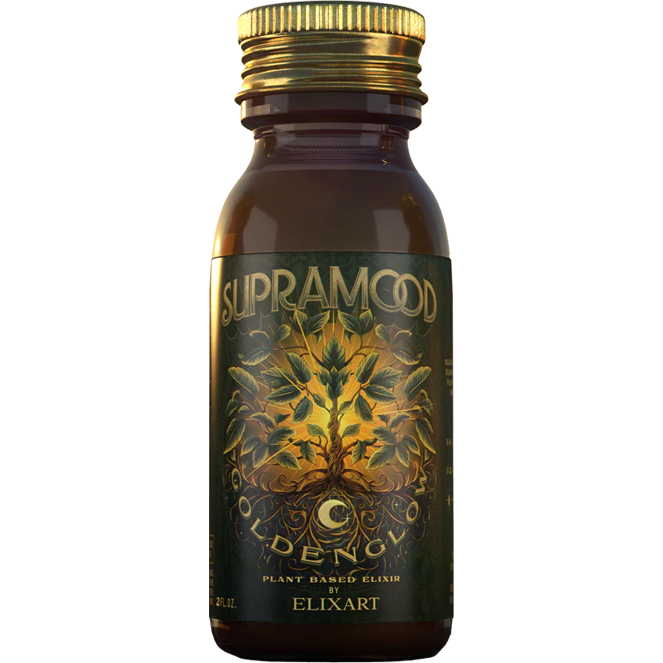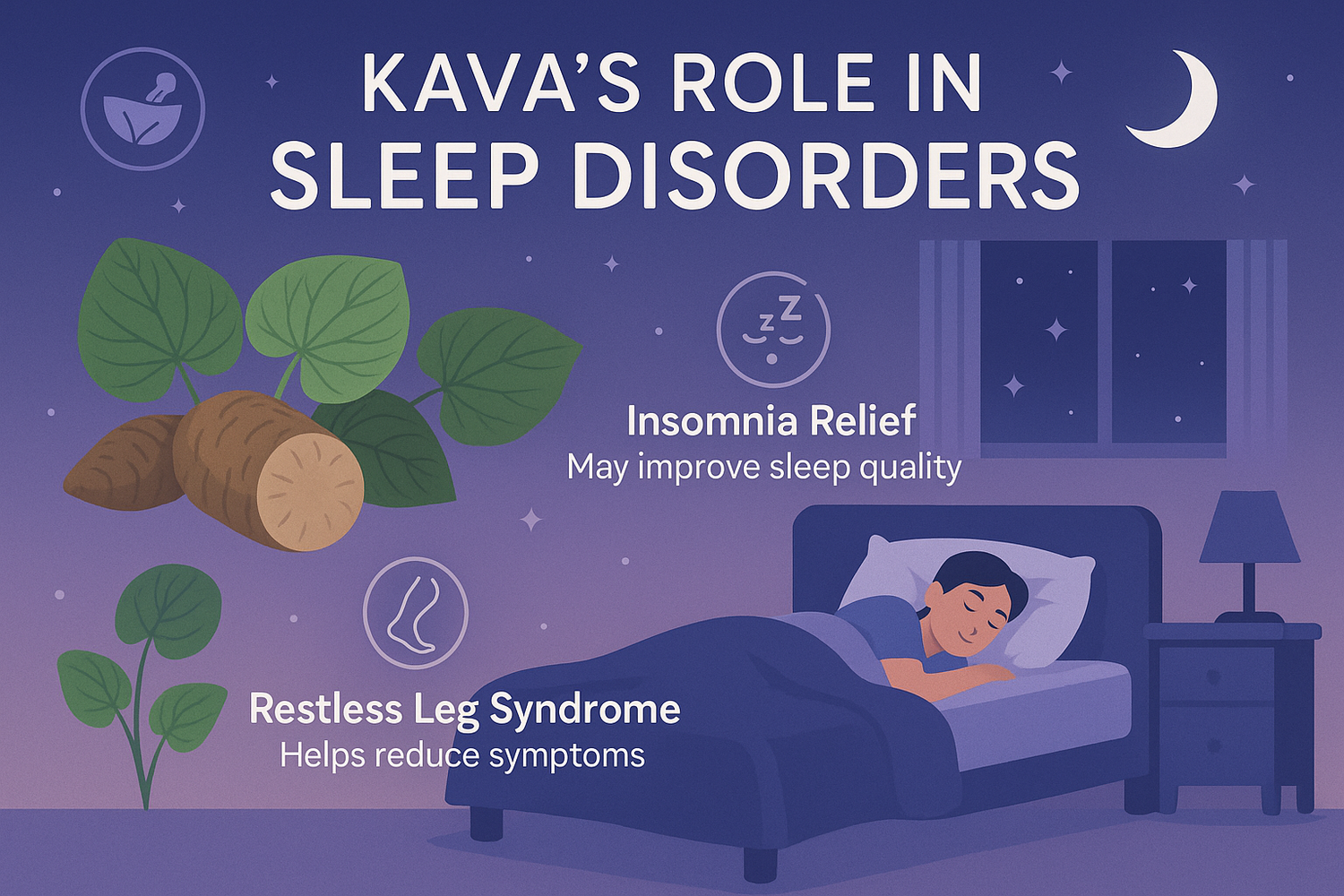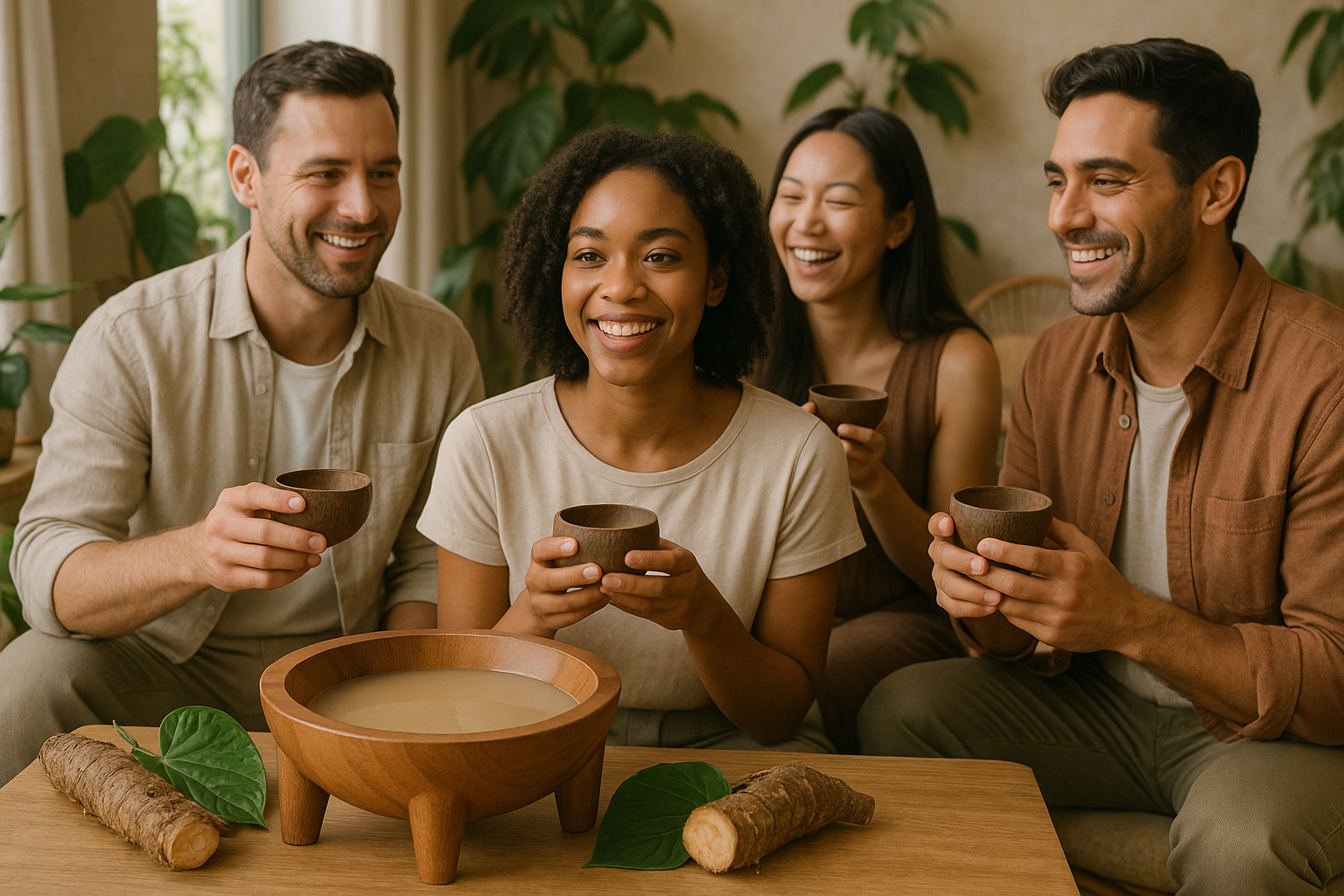Table of Contents
-
The Calming Effects of Kava for Insomnia
- Overview of Kava's History and Traditional Uses
- Mechanism of Kava on Neurotransmitters Related to Sleep
- Personal Anecdotes of Those Who Found Solace in Kava
- Research on Kava's Effects on Sleep Quality
- Dosage Recommendations for Effective Use
- Potential Side Effects of Sleep Disorders
- Consumer Preferences for Natural Sleep Aids
- Chart of Kava's Sleep Benefits
- Insights into Restless Leg Syndrome Relief with Kava
- Harmonizing Kava with Other Sleep Aids
- Addressing Safety and Potential Side Effects of Kava
-
Responsible Usage and Dosage Guidelines
- Real-Life Testimonials Highlighting Personal Safety Experiences
- Frequently Asked Questions
Imagine tossing and turning in bed, your mind racing as the clock ticks past midnight. The struggle with insomnia is all too real for many. In a world that often overlooks the power of nature, Kava emerges as a calming ally in our quest for restful sleep. Not only does it promise to soothe the restless soul, but emerging studies suggest it could also provide relief for conditions like restless leg syndrome. This post explores how Kava can transform our sleep routines, reminiscent of how a warm cup of herbal tea ushers in tranquility after a long day.
The Calming Effects of Kava for Insomnia
Kava’s calming properties make it a natural ally against insomnia, helping to quiet the mind and ease tension before sleep.

By promoting relaxation without heavy sedation, it supports deeper, more restorative rest.
Overview of Kava's History and Traditional Uses
Kava has a rich history. This calming beverage originates from the South Pacific. For centuries, it has been used in traditional ceremonies and social gatherings. People would gather, sip Kava, and enjoy its soothing effects. It was not just a drink; it was a way to connect. The roots of the Kava plant are ground into a fine powder, mixed with water, and consumed. This practice has deep cultural significance.
Mechanism of Kava on Neurotransmitters Related to Sleep
So, how does Kava work? It primarily affects neurotransmitters in the brain. Neurotransmitters are chemicals that transmit signals in the brain. Kava increases the levels of GABA, a neurotransmitter that promotes relaxation.

When GABA levels rise, anxiety decreases. This reduction in anxiety can pave the way for better sleep. It’s like turning down the volume on a noisy radio. Less noise means a clearer signal for sleep.
Personal Anecdotes of Those Who Found Solace in Kava
Many individuals have shared their experiences with Kava. One user, Sarah, struggled with insomnia for years. She tried various remedies, but nothing worked. Then she discovered Kava. "I was skeptical at first," she said. "But after a few nights of drinking Kava, I felt a difference. I could finally sleep." Sarah's story is not unique. Numerous people have turned to Kava during sleepless nights and found relief.
Research on Kava's Effects on Sleep Quality
Scientific studies support these personal accounts. A 2018 study revealed that 60% of participants reported improved sleep quality after using Kava. Additionally, participants noted an average reduction of 2 hours needed to fall asleep after using Kava. These findings highlight Kava's potential as a natural sleep aid.
Dosage Recommendations for Effective Use
When considering Kava, dosage is crucial. The right amount can make a significant difference. Generally, a dose of 250-300 mg of Kava extract is recommended for adults. However, it’s wise to consult a healthcare professional before starting any new supplement. This ensures that Kava fits well into one’s overall health plan.
Potential Side Effects of Sleep Disorders
While Kava is generally safe, some may experience side effects. These can include mild gastrointestinal issues or drowsiness. It’s essential to be aware of how Kava affects individual bodies. Monitoring reactions can help in adjusting the dosage or deciding if Kava is the right choice.
"Kava has an ancient history of promoting relaxation and sleep, making it an intriguing option for modern sleep issues." - Dr. Jane Smith
Consumer Preferences for Natural Sleep Aids
Kava for insomnia has gained popularity. It ranks high among consumer preferences for natural sleep aids. Many are looking for alternatives to pharmaceuticals. Kava offers a natural solution that resonates with those seeking holistic approaches. For those interested in trying Kava, products like Supramood GoldenGlow Elixir can be a great option. It combines the benefits of Kava with other calming ingredients.
Chart of Kava's Sleep Benefits
As more individuals seek natural remedies, Kava stands out. It offers a historical legacy combined with modern scientific backing. The stories of those who have found solace in Kava continue to inspire others to explore its calming effects.
Insights into Restless Leg Syndrome Relief with Kava
Kava’s natural muscle-relaxing and calming effects may offer relief for those struggling with Restless Leg Syndrome. By soothing the nervous system, it helps reduce the urge to move and promotes more peaceful, uninterrupted sleep.
Understanding Restless Leg Syndrome (RLS)
Restless Leg Syndrome, or RLS, is a condition that affects many individuals. It causes an uncontrollable urge to move the legs, often accompanied by uncomfortable sensations. These sensations can be described as tingling, crawling, or aching. Imagine trying to relax after a long day, only to feel like your legs are urging you to move. This can lead to significant sleep disturbances and discomfort.
RLS can affect anyone, but it is more common in women and those with certain medical conditions. The reasons behind RLS are still being studied, but it is believed to involve neurological factors. For instance, dopamine, a neurotransmitter responsible for movement, may not function properly in those with RLS. This can result in the unpleasant sensations that characterize the syndrome.
Emerging Evidence on Kava's Efficacy
Kava, a plant native to the South Pacific, has gained attention for its potential benefits in managing various conditions, including RLS. Recent studies have started to explore its efficacy. Some research suggests that Kava may help promote relaxation and improve sleep quality. This could be particularly beneficial for those suffering from RLS.
In fact, a significant finding indicates that 35% of individuals with RLS reported symptom relief after Kava supplementation. This statistic is noteworthy and points to Kava's potential as a natural remedy. Additionally, clinical trials have shown statistical significance in muscle relaxation outcomes when Kava was used. This could mean that Kava not only alleviates the urge to move but also helps relax the muscles, providing further relief.
"The preliminary findings on Kava for RLS are promising and warrant further investigation." - Dr. Alan Brown
Comparing Kava with Traditional Treatments
When comparing Kava with traditional RLS treatments, there are key differences to consider. Traditional treatments often include medications such as dopamine agonists or anticonvulsants. While these can be effective, they may come with side effects. Some individuals may experience nausea, dizziness, or even dependency on these medications.
Kava, on the other hand, is derived from a natural source and may offer a gentler alternative. However, it is essential to approach Kava with caution. While it has shown promise, it is crucial to consult a healthcare provider before starting any new treatment. Combining Kava with other sleep aids could create an effective routine, but again, professional guidance is recommended.
Table of Key Findings
|
Finding |
Details |
|---|---|
|
Symptom Relief |
35% of individuals with RLS reported symptom relief after Kava supplementation |
|
Muscle Relaxation |
Statistical significance in muscle relaxation outcomes in clinical trials |
Further Reading and Resources
For those interested in exploring Kava's potential benefits for RLS, several studies are available. You can find valuable insights in academic journals and health websites. Additionally, if you're considering Kava as a supplement, check out Supramood's GoldenGlow Elixir. This product may offer a convenient way to incorporate Kava into your routine.
Understanding RLS and exploring natural remedies like Kava can be a journey. It's essential to stay informed and consult healthcare professionals for the best outcomes. For more detailed studies and insights, consider visiting reputable health sites or journals that focus on sleep disorders.
Harmonizing Kava with Other Sleep Aids
Kava is gaining popularity as a natural remedy for sleep disorders. But what if it could be even more effective when combined with other sleep aids? This section explores how to harmonize Kava with various supplements to create an optimal sleep routine.
Popular Sleep Aids that Pair Well with Kava
When considering sleep aids, Kava can work well with several options. Here are some popular choices:
Melatonin:
This hormone regulates sleep-wake cycles. A study found that 55% of users reported better sleep when Kava was combined with melatonin.
Valerian Root:
Known for its calming effects, valerian root can enhance Kava's ability to promote relaxation.
Chamomile:
Often consumed as tea, chamomile has mild sedative properties that can complement Kava’s effects.
L-Theanine:
An amino acid found in tea, L-theanine promotes relaxation without drowsiness, making it a great pairing.
These combinations can create a more potent sleep aid. Imagine a blend that not only helps you fall asleep faster but also improves sleep quality. That’s the power of combining Kava with other sleep aids!
Tips for Creating an Optimal Sleep Routine
Establishing a sleep routine can significantly improve sleep quality. Here are some tips to consider:
Consistency:
Go to bed and wake up at the same time every day. This helps regulate your body's internal clock.
Wind Down:
Create a relaxing pre-sleep ritual. Activities like reading or meditating can signal to your body that it’s time to sleep.
Limit Screen Time:
The blue light from screens can interfere with melatonin production. Try to avoid screens at least an hour before bed.
Consider Your Environment:
Make your bedroom a sleep-friendly zone. Keep it dark, quiet, and cool.
Combine Wisely:
When using Kava with other aids, start with lower doses to see how your body reacts.
By following these tips, individuals can enhance their sleep experience. It’s about finding what works best for each person.
Potential Interactions to Be Aware Of
While combining Kava with other sleep aids can be beneficial, it’s essential to be aware of potential interactions. Some points to consider include:
Alcohol:
Mixing Kava with alcohol can amplify sedative effects, leading to excessive drowsiness.
Prescription Medications:
Certain medications, especially sedatives, may interact negatively with Kava.
Herbal Supplements:
Combining multiple herbal supplements can lead to unpredictable effects. It’s best to consult a healthcare professional.
Understanding these interactions is crucial for safety. Always prioritize health when experimenting with combinations.
Personal Stories of Effective Sleep Aid Combinations
Many users have shared their experiences with Kava and other sleep aids. One user reported, “I started taking Kava with melatonin, and it changed my sleep game. I fall asleep faster and feel more rested in the morning.”
Another individual mentioned, “Adding chamomile tea to my Kava routine made a noticeable difference. It’s as if the two work together to create a calming effect.”
These personal stories highlight the potential of combining Kava with other aids to enhance sleep quality.
"Combining Kava with other sleeping aids can create a synergistic effect, making the sleep experience much more restful." - Dr. Emily White
Ultimately, Kava can be a powerful ally in the quest for better sleep. When paired with other sleep aids, it can form a robust routine that many individuals find beneficial. As always, consider individual needs and consult a professional if unsure.
For more insights on herbal remedies, check out this study on the effectiveness of herbal sleep aids.
Addressing Safety and Potential Side Effects of Kava
Kava has gained popularity as a natural remedy for sleep disorders. However, many misconceptions surround its safety. It’s essential to separate fact from fiction. Are people really at risk when using Kava? Or is it a misunderstood herbal solution? Let’s explore.
Common Misconceptions About Kava Safety
One of the biggest myths is that Kava is dangerous for everyone. This isn't true. While some individuals may have adverse reactions, reports indicate that adverse effects are less than 5% when Kava is consumed responsibly. This suggests that most users can enjoy its benefits without significant risks.
Another misconception is that Kava is just like alcohol. In reality, Kava works differently. It doesn’t impair cognitive function in the same way. Instead, it can promote relaxation without the hangover effects often associated with alcohol consumption. Understanding these differences is crucial for safe usage.
Responsible Usage and Dosage Guidelines
To enjoy Kava safely, responsible usage is key. Here are some guidelines:
- Start Small: Begin with a low dose to see how your body reacts.
- Limit Frequency: Use Kava occasionally, not daily.
- Consult a Professional: Speak with a healthcare provider before starting, especially if on medication.
It’s also important to consider the source of your Kava. High-quality products, like Supramood GoldenGlow Elixir, can make a difference in safety and effectiveness. Always choose reputable brands.
Real-Life Testimonials Highlighting Personal Safety Experiences
Many users have shared positive experiences with Kava. For instance, one individual reported that Kava helped alleviate their insomnia. They found that with the right dosage, they could sleep peacefully without feeling groggy the next day. Another person mentioned that Kava eased their restless leg syndrome, allowing them to relax and enjoy a good night’s sleep.
These testimonials highlight the importance of responsible usage. As one health expert stated,
“Like many herbal remedies, Kava needs to be used with an awareness of its effects and proper dosages to avoid potential side effects.”
This advice is a reminder that education is crucial when trying new supplements.
Contradictory Opinions from Health Experts
It’s important to note that opinions on Kava safety can vary among health experts. Some emphasize its benefits, while others warn of potential risks. This contradictory viewpoint can create confusion. However, the key takeaway is to approach Kava with caution and respect its potency.
Resources for Safe Kava Intake
For those interested in exploring Kava, numerous resources are available. Websites like the National Center for Complementary and Integrative Health provide valuable information on herbal remedies. Additionally, local health food stores often have knowledgeable staff who can guide safe usage.
Potential Side Effects on Sleep Disorders
While Kava can be beneficial for sleep disorders, potential side effects do exist. Some users have reported mild gastrointestinal discomfort or headaches. It’s essential to monitor your body’s response and adjust usage accordingly.
In conclusion, Kava can be a helpful ally in managing sleep disorders when used responsibly. By debunking myths and following dosage guidelines, individuals can safely explore its benefits. Always remember to consult with a healthcare provider and choose high-quality products. With proper care, Kava can be a valuable part of a sleep solution routine.
TL;DR: Explore the benefits of Kava in managing sleep disorders such as insomnia and restless leg syndrome, potential combinations with other aids, and important safety considerations.
Frequently Asked Questions (FAQs)
1. What is Kava and how does it help with sleep?
Kava is a natural root from the South Pacific known for its calming effects. It works by increasing levels of GABA, a neurotransmitter that promotes relaxation and reduces anxiety, helping the body prepare for restful sleep.
2. Can Kava really help with insomnia?
Yes, multiple studies and user reports suggest that Kava can reduce the time it takes to fall asleep and improve overall sleep quality. It’s particularly useful for individuals who experience anxiety-related insomnia.
3. How does Kava affect neurotransmitters in the brain?
Kava influences neurotransmitters such as GABA and dopamine, which are key to relaxation and emotional balance. By modulating these pathways, Kava supports calmness without impairing cognitive function.
4. Is Kava effective for Restless Leg Syndrome (RLS)?
Preliminary research and user testimonials indicate that Kava may help relax muscles and reduce the urge to move the legs, offering relief for those suffering from RLS-related sleep disturbances.
5. How much Kava should I take for better sleep?
A general dosage of 250–300 mg of standardized Kava extract is recommended for adults. However, it’s best to start with a smaller dose and consult a healthcare professional before regular use.







Leave a comment
This site is protected by hCaptcha and the hCaptcha Privacy Policy and Terms of Service apply.